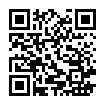Когнитивное сопротивление воздействиям со стороны государства в России (на примере вакцинации от COVID-19)
Научная статья
Аннотация
Литература
2. Гимпельсон В. Е. Доверие полиции: межстрановой анализ / В. Е. Гимпельсон, Г. А. Монусова // Вопросы экономики. 2012. № 11. С. 24–47. DOI 10.32609/0042-8736-201211-24-47. EDN PFRHKP.
3. Журавлев А. Л. Региональные и половые различия доверия предпринимателей к разным видам организаций / А. Л. Журавлев, В. А. Сумарокова // Знание. Понимание. Умение. 2012. № 4. С. 36–45. EDN PXACYP.
4. Клейнер Г. Б. Экономика России и кризис взаимных ожиданий // Общественные науки и современность. 1999. № 2. С. 5–19. EDN VUPJSV.
5. Козырева П. М. Правовое сознание и доверие // Полис. Политические исследования. 2008. № 4. С. 86–101. EDN JUQJUF.
6. Кученкова А. В. Российская интеллигенция и институты: доверие или отчуждение? // Социологические исследования. 2017. № 10 (402). С. 113–121. DOI 10.7868/S0132162517100129. EDN ZNGYLZ.
7. Мильнер Б. З. Фактор доверия при проведении экономических реформ // Вопросы экономики. 1998. № 4. С. 27–38.
8. Петухов Р. В. Доверие российского общества к органам местного самоуправления как проблема // Полис. Политические исследования. 2017. № 6. С. 61–75. DOI 10.17976/jpps/2017.06.05. EDN ZVMOKR.
9. Росс Л. Человек и ситуация / Л. Росс, Р. Е. Нисбетт. М.: Аспект пресс, 1999. 429 с.
10. Eagly A. H. Causal inferences about communicators and their effect on opinion change / A. H. Eagly, W. Wood, S. Chaiken // Journal of Personality and social Psychology. 1978. № 4. Р. 424–435.
11. LaPiere R. T. Attitudes vs. actions // Social forces. 1934. № 2. Р. 230–237.
12. Smith R. E. Information response models: An integrated approach / R. E. Smith, W. R. Swinyard // Journal of Marketing. 1982. № 1. Р. 81–93.
13. Wright P. L. Analyzing media effects on advertising responses // Public opinion quarterly. 1974. № 2. Р. 192–205.
14. Wright P. Factors affecting cognitive resistance to advertising // Journal of Consumer Research. 1975. № 1. Р. 1–9.

Поступила: 28.10.2021
Опубликована: 20.06.2022







 Издатель: Федеральное государственное бюджетное учреждение науки
Издатель: Федеральное государственное бюджетное учреждение науки